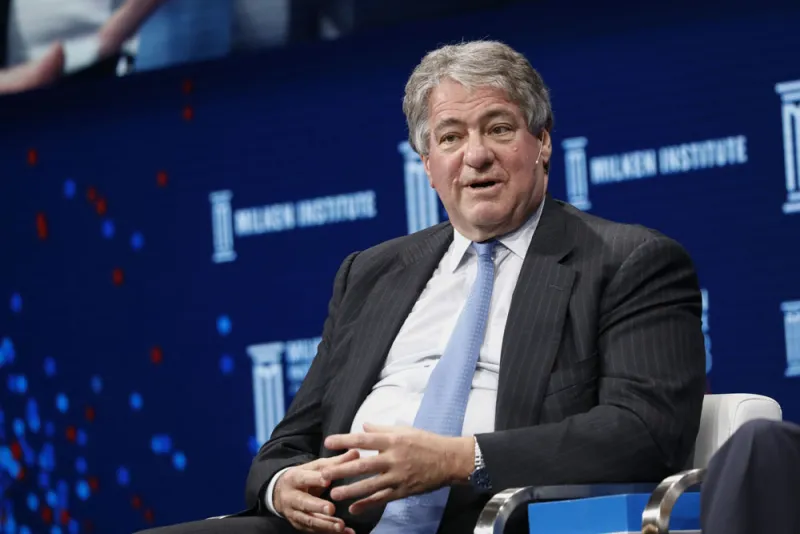When Apollo Global Management approached the Investment Management Corp. of Ontario about a credit fund it was raising in the market tumult caused by the coronavirus, the Canadian pension manger was ready to be nimble — even with its staff dispersed and working from home since mid-March.
“It was clearly in the maelstrom, in the midst of the market chaos,” Christian Hensley, IMCO’s senior managing director of equities and credit, said Thursday in an interview. “Apollo reached out as we had been in close contact with them about a number of opportunities.”
Demand from institutional investors drove the speedy fundraising of Apollo Accord Fund III B, a credit fund that closed on $1.75 billion in commitments within about eight weeks, according to a statement from the alternative asset manager Thursday. IMCO said it committed $250 million to the fund, moving “very quickly” to benefit from “dislocated opportunities as they arise.”
Apollo, a New York-based private equity firm known for distressed investing, said it saw significant opportunity during the first quarter as the novel virus wreaked havoc on markets. The Accord fund focuses on “mispriced credit risk,” John Zito, Apollo’s deputy chief investment officer of credit and co-head of global corporate credit, said in the firm’s statement.
[II Deep Dive: Apollo Pivots Buyout Fund ‘Almost Entirely’ Into Distressed Mode]
IMCO said the new fund will seek to buy debt that has dropped in price for “non-economic reasons” as investors feel pressure to sell due to liquidity concerns when markets are dislocated. Apollo Accord Fund III B may invest in the debt of companies that are fundamentally sound, but whose credit prices have been dragged down by broad market selloffs during the crisis, Hensley explained.
“This is about liquidity-driven dislocations,” James Zelter, Apollo’s co-president and CIO for credit, said in an interview. “If you go back to the dark days of March, we quickly drew down all the remaining capital in Accord III and executed on our mandate. It became very apparent that there was appetite for III B.”
IMCO, which managed CAD$70.3 billion (about $50 billion) of assets at the end of December, plans to expand its credit investing. The Toronto-based pension manager expects to increase its credit assets to CAD$8 billion in the next five years, from CAD$3 billion currently, said Hensley.
His group was well-positioned to quickly commit to Apollo, he said, because it had the liquidity it needed as well as the technology to conduct meetings online. At times, Hensley said he felt like he belonged to a call center when working from home in the early days of pandemic.
“You get out of bed, you get ready in the morning, you turn on your screen, you hit a button, and you’re in a meeting,” he said. As the crisis was unfolding, Hensley said he hit that button repeatedly until suddenly it was past dinner time. “We were cranking away to react to — and be productive in — the market that we saw.”
IMCO relied on Zoom during the fundraising process for Apollo Accord Fund III B, according to Hensley. “It’s been a different experience,” he said. “We were fortunate for having had the opportunity previously to have met with the portfolio managers.”
In some ways, he found the online technology helped make the investment analysis more efficient when considering a commitment to the fund.
“We could accelerate the process because we could invite our risk teams, our legal teams, our accounting teams, our performance measurement and attribution teams to the same calls all at the same time,” Hensley said. “We could run in parallel because we knew this was an important inflection point in the market.”
While online meetings have proved productive, IMCO has been considering what working in the office might safely look like as economies begin to reopen during the pandemic.
“Our senior management team has been meeting regularly thinking about ways to transition back to a new normal,” Hensley said. “We want to make sure we’re respectful of people’s individual wishes, but also the constraints of government and the virus itself.”
—Julie Segal contributed to this report.







